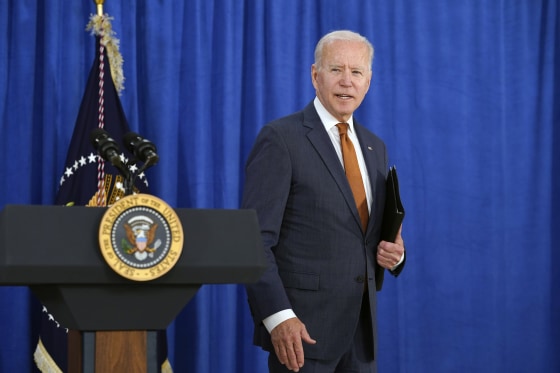President Joe Biden on Monday announced the Department of Justice will continue to defend a law that bars residents of Puerto Rico from obtaining federal benefits for low income disabled people even though he believes the "provision is inconsistent with my Administration’s policies and values."
The president issued the statement ahead of a brief that lawyers for the DOJ planned to file with the U.S. Supreme Court defending a provision in the Social Security Act that stops Puerto Rico residents from collecting Supplemental Security Income, or SSI, benefits. The provision is being challenged in the case of the United States v. Jose Luis Vaello-Madero.
"As I have stated, I believe that Puerto Rico residents should be able to receive SSI benefits, just like their fellow Americans in all 50 states and Washington D.C.," Biden said in a statement.
"However, the Department of Justice has a longstanding practice of defending the constitutionality of federal statutes, regardless of policy preferences. This practice is critical to the Department’s mission of preserving the rule of law. Consistent with this important practice, the Department is defending the constitutionality of the Social Security Act provision in this case," he added.
The president urged Congress to amend the Social Security Act to make the benefits available in Puerto Rico, and also called for legislators to eliminate Medicaid funding caps for the U.S. territory.
"As I’ve said before, there can be no second-class citizens in the United States of America. My Administration will work with members of Congress to make these legislative fixes a reality," Biden said.
Hermann Ferré, a lawyer for Vaello-Madero, told NBC News that, "While we are gratified the president has called attention to the importance of the case, we don’t see how it’s possible to defend a statutory scheme that, as the president rightly acknowledges, treats Puerto Rico residents as 'second-class citizens.' Such treatment is, by definition, unconstitutional under equal protection principles."
Ferré's client is a U.S. citizen with health problems who started receiving SSI benefits when he was living in New York in 2012, but lost his eligibility when he moved to Puerto Rico a year later. The government sued to get the payments back after it discovered he'd moved, court filings show.
Vaello-Madero's lawyers contended that the provision violated the equal-protection component of the Due Process Clause of the Fifth Amendment, and two courts have agreed, leading the then-Trump administration to appeal to the Supreme Court.
In its court filings, the government has argued that the provision is constitutional and that Congress already "provides federal assistance to needy aged, blind, and disabled individuals in Puerto Rico through a different program — Aid to the Aged, Blind, and Disabled (AABD)." It said "AABD provides more local control but less federal funding than SSI."
The high court agreed in March to hear the case.

